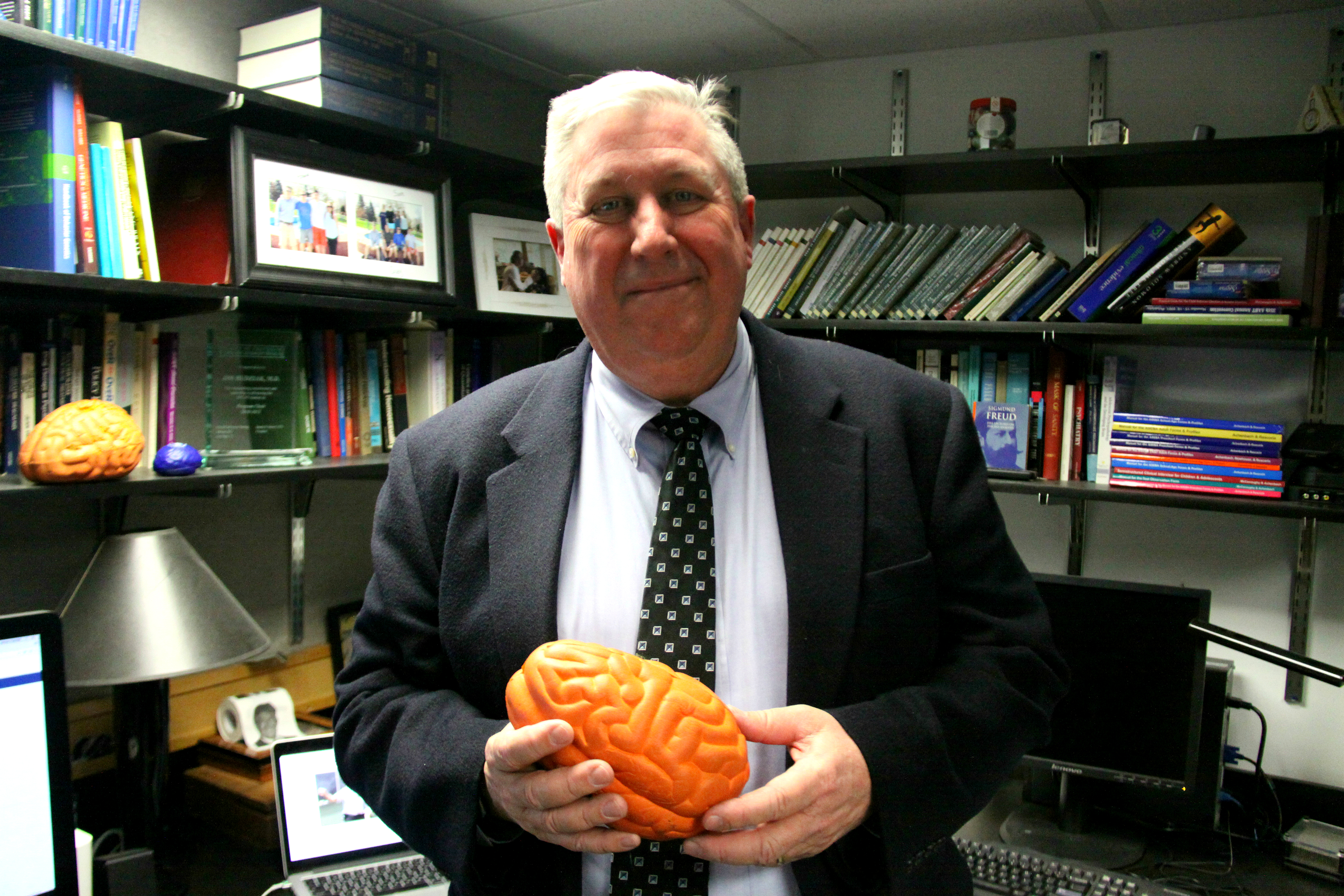
The Wellness Environment program at the University of Vermont is based on research by Dr. Jim Hudziak. (Kirk Carapezza/WGBH)
Marijuana-use and binge drinking have long been major problems on college campuses - something administrators prefer to hide or sweep under the rug. Now, one local university in northern New England is using the latest neuroscience to combat that culture - and perhaps change its reputation as a party school.
Inside the gym at the University of Vermont in Burlington, class is about to begin.
Students sit in a circle on yoga mats, finding their grounding points.
They’re all enrolled in a new program at the University of Vermont designed to help them make healthy life choices -- from doing yoga and mindfulness exercises to avoiding drugs and alcohol.
The program is based on years of research by Dr. Jim Hudziak, a pediatric neuropsychiatrist at UVM's Medical School.
"We've been learning a lot more about the developing brain and which parts of the brain develop when," Hudziak said.
His research shows that the same carrot-and-stick approach that motivates his young patients also works with college students because we now know that their brains are still developing even after they graduate.
It's just a matter of figuring out what carrots and sticks to use.
Related: What Can Higher Ed Learn From The Latest Research On The Teen Brain?
"The most critical part of the brain - for paying attention, for regulating your emotions, for making good decisions - has not even been organized yet,” Hudziak said. “We get that envelope, you get accepted to college, and we celebrate the fact that we are putting a wildly unprepared, underdeveloped brain in a high-risk environment."
Students accepted into Hudziak's program live together in a residence hall. They have fitness and nutrition coaches, an in-house gym and access to free violin lessons.
It's a pretty sweet deal as long as you stay substance-free in the dorm. One infraction, and you're out. And if you don't use the gym often enough, you lose your free membership.
Hudziak's incentive-based approach seems to be working.
This year, more than 480 students enrolled and administrators have given him a new dorm they're building right in the heart of campus because they're expecting to triple that number next fall.
“It just didn’t make sense to read about it and not live it, and this seemed like the perfect place to learn how to live it, too,” said first-year Azilee Curl from Hopkinton, Massachusetts, who is studying neuroscience.
Curl says says the program influenced her college decision.
“When I heard about it, it made me really excited to come to UVM,” she said. “It really, really sparked my interest."
Related: To Address Binge Drinking, Boston University Publishes Numbers
UVM administrators hope that sentiment convinces more students to enroll.
Vice Provost for Student Affairs Annie Stevens says promoting the school isn't the primary goal of the program, but it's a nice side benefit.
“I see that, but it's a program that truly believes in healthy options for students in ways that they can really learn and grow,” Stephens said.
Of course, the substance-free, wellness environment isn't for everyone. Emily Bruggeman, 19, from Hebron, Connecticut, says it all seemed a bit forced so she didn't apply.
“It was probably gonna be too regimented for my lifestyle,” Bruggeman said. “I like to be a little bit more autonomous in terms of my well-being.”
Still, Doctor Hudziak says his program is increasingly popular. Nearly all first-year students stay on for a second year.
"I have this prevailing belief that young people, given the opportunity to make good decisions, would choose to make good decisions,” he said. “But they have to be in an environment where those choices are as easily available as high-risk decisions.”
Hudziak’s message is capturing the attention of higher education leaders across the country.
More than 20 other schools, including NYU, Tulane and Boston University, have contacted him, seeking the secret sauce.
Earlier: The Science Behind A Memorable Commencement Speech










